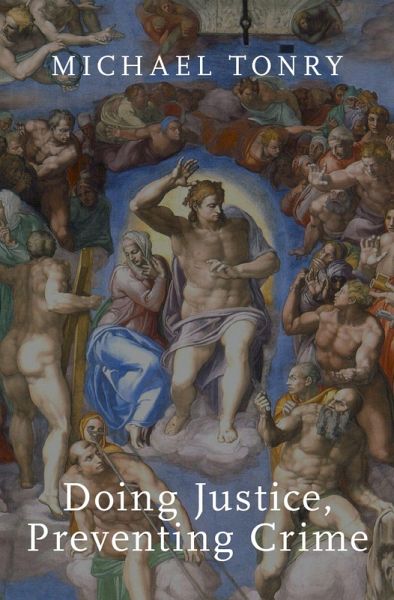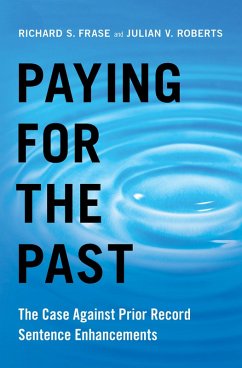
Doing Justice, Preventing Crime (eBook, PDF)
Versandkostenfrei!
Sofort per Download lieferbar
13,95 €
inkl. MwSt.
Weitere Ausgaben:

PAYBACK Punkte
7 °P sammeln!
Punishment policies and practices in the United States today are unprincipled, chaotic, and much too often unjust. The financial costs are enormous. The moral cost is greater: countless individual injustices, mass incarceration, the world's highest imprisonment rate, extreme disparities, especially affecting members of racial and ethnic minority groups, high rates of wrongful conviction, assembly line case processing, and a general absence of respectful consideration of offenders' interests, circumstances, and needs. In Doing Justice, Preventing Crime, Michael Tonry lays normative and empirica...
Punishment policies and practices in the United States today are unprincipled, chaotic, and much too often unjust. The financial costs are enormous. The moral cost is greater: countless individual injustices, mass incarceration, the world's highest imprisonment rate, extreme disparities, especially affecting members of racial and ethnic minority groups, high rates of wrongful conviction, assembly line case processing, and a general absence of respectful consideration of offenders' interests, circumstances, and needs. In Doing Justice, Preventing Crime, Michael Tonry lays normative and empirical foundations for building new, more just, and more effective systems of sentencing and punishment in the twenty-first century. The overriding goals are to treat people convicted of crimes justly, fairly, and even-handedly; to take sympathetic account of the circumstances of peoples' lives; and to punish no one more severely than he or she deserves. Drawing on philosophy and punishment theory, this book explains the structural changes needed to uphold the rule of law and its requirement that the human dignity of every person be respected. In clear and engaging prose, Michael Tonry surveys what is known about the deterrent, incapacitative, and rehabilitative effects of punishment, and explains what needs to be done to move from an ignoble present to a better future.
Dieser Download kann aus rechtlichen Gründen nur mit Rechnungsadresse in A, B, BG, CY, CZ, D, DK, EW, E, FIN, F, GR, HR, H, IRL, I, LT, L, LR, M, NL, PL, P, R, S, SLO, SK ausgeliefert werden.













